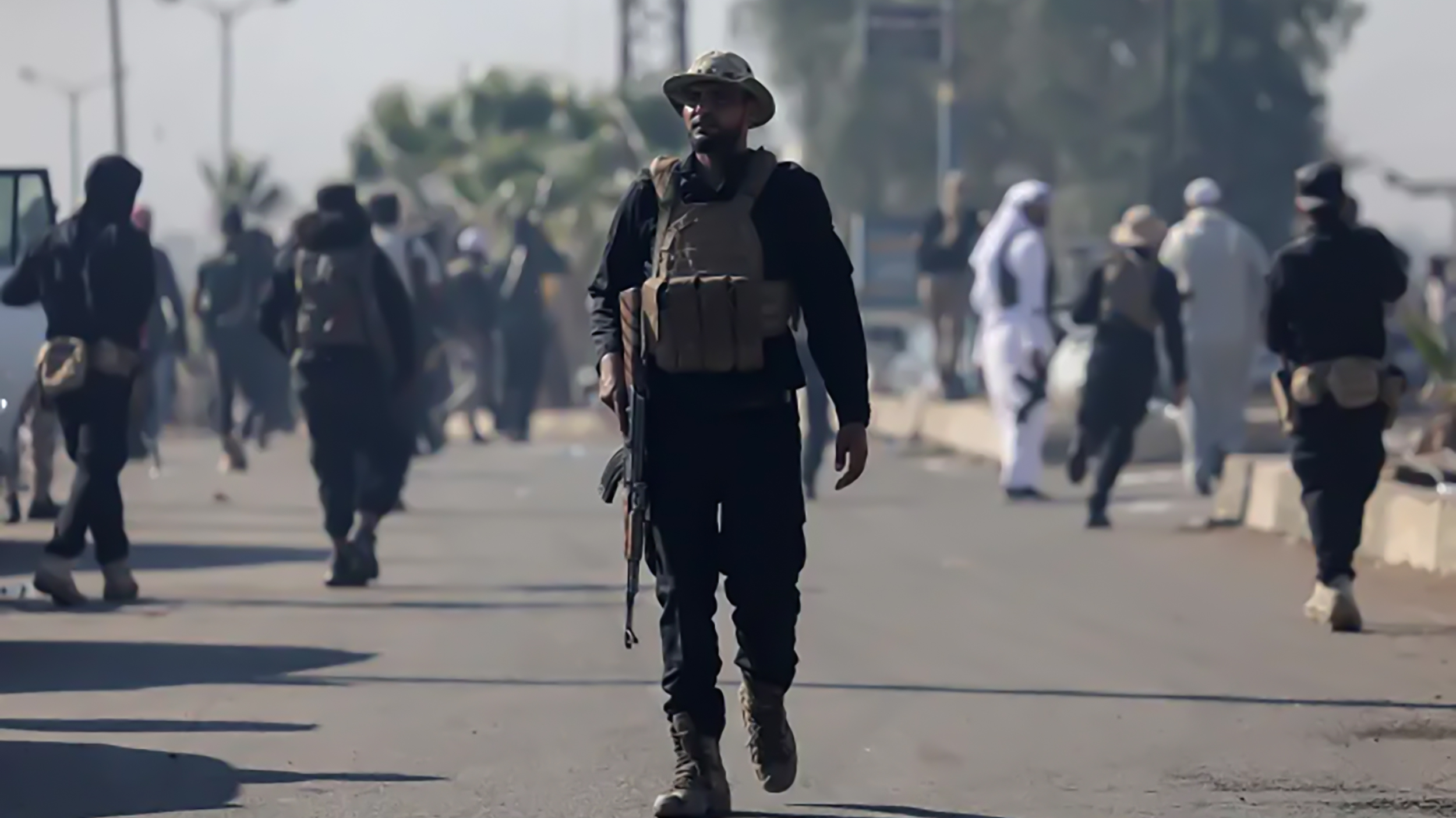
On 14 July 2025, amid the escalating crisis in the Druze-majority Suwayda governorate, the Syrian leadership resolved to assert state control over the southern province, seeking to put an end to clashes in the area between Druze groups and Bedouin tribesmen, fill the security vacuum, and quell the rebellion led by Druze sheikh Hikmat al-Hijri.
The deployment of army and security forces was accomplished relatively quickly and without significant losses; but as evening fell, Israel launched a new wave of attacks on Syria, striking army and security forces and military facilities in the southern province, the neighbouring Daraa governorate, and even Damascus. The attacks resulted in dozens of casualties, generating widespread anger among the Syrian public.
Israeli leaders’ initial justification for the attack was that the deployment of Syrian military personnel and heavy weaponry to the southern governorates of Quneitra, Daraa and Suwayda constituted a threat to its national security. The next day, however, they claimed that the objective was to protect the Druze of Syria.
The Israeli intervention prompted frantic mediation efforts, which culminated in an agreement for the cessation of Israeli attacks in exchange for the complete withdrawal of Syrian army and security forces from Suwayda.
The crisis appeared to have been contained; but soon after Syrian forces withdrew from Suwayda, al-Hijri’s armed faction retook the city and advanced in the countryside where they began massacring Sunni Bedouins and set off another round of violence. Renewed mediation efforts followed. The agreement that resulted provided for an end to Israeli attacks, the disarmament of rebel groups, and the gradual extension of state sovereignty to the province. While he announced his acceptance of the agreement, al-Hijri asserted that security forces would not be allowed to enter Suwayda under any circumstances.
The turn of events show that al-Hijri is a major obstacle to the project of Syrian unification, but the Israeli intervention added a new layer of complexity to the crisis and marginalised the role of the Syrian state in its own territory. Although a significant segment of the Druze community sided with the state, Israel sought to portray the crisis as a manifestation of a conflict between the Druze minority and the Sunni state. Israel’s motives, however, go far beyond the protection of the Druze minority in Syria.
Since its inception, Israel has waged multiple wars against its neighbours to keep them divided and weak. Its frequent attacks on Syria during the last decade of the Assad regime are a testament to this strategy; and its actions following the fall of the regime—the destruction of Syria’s military capabilities, the occupation of more Syrian territory, and the repeated attacks on Syrian military positions—are a continuation of this pattern. This long-standing policy and Israel’s recent actions demonstrate that it will not allow Syria to regain its unity, sources of strength and stability. Its intervention to prevent the assertion of Syrian sovereignty in Suwayda will be followed by another intervention to prevent the state from resolving the situation in the Jazira region and the northeast. In both cases, the primary motive is not sympathy for the Druze or the Kurds, but rather to keep Syria fragile and consumed by its internal conflicts.
The new Syrian leadership appears to have prioritised economic development. To this end, it has declared its openness to the West, particularly the United States, and given security guarantees to Israel. Syrian leaders may assume these measures will protect the country, but Israel’s policy toward Syria is not governed purely by security concerns. Israel is loath to see the emergence of a united, strong Syria, regardless of its religious, sectarian or ideological bent; and recent events indicate Syria will be unable to protect itself from this strategic Israeli threat. The Syrian government may thus attempt to strengthen its defensive capabilities while working to restore the unity of its territory and people as quickly as possible. This will require close alliances with friendly powers in the region and the world, a reconsideration of the foundations of the new governing order, and a defence policy based on an organic partnership between state institutions and various sectors of the Syrian people.
As a complement to this strategy, the Syrian leadership may choose to work with the United States to implement the latter’s declared policy on the new Syria, the goal of which, according to the US administration, is the creation of a stable, unified and Western-friendly Syria. This would require the United States to compel Israel to stop destabilising Syria. That, however, remains a distant goal.
*This is a summary of a policy brief originally written in Arabic available here.